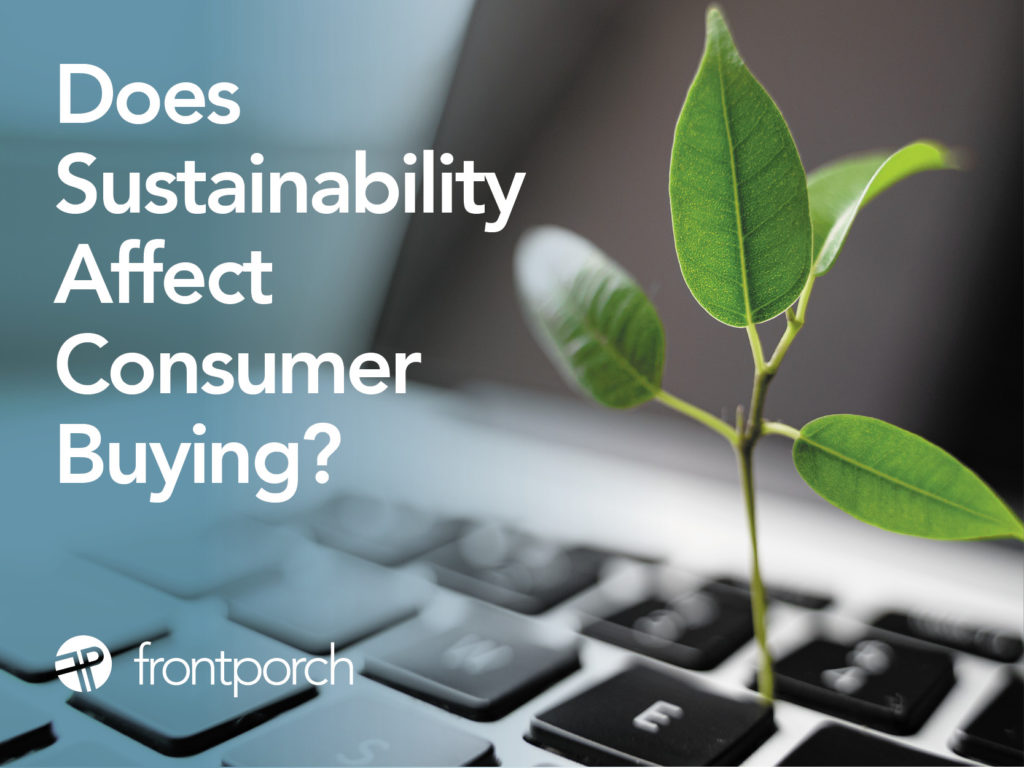
Sustainability is top of mind with consumers. They have more choice than ever on where to spend their money. So more than ever, companies are focusing on sharing their sustainability efforts with their customers. Does sustainability affect consumer buying? The data says yes.
ESG (Environmental, social and Governance) are the criteria used by companies to build value. They organize business objectives around sustainability-focused risks and opportunities. Initiatives can include customers, supply chain, and even employees of a company. So get started! Basically, start by tracking your company’s impact on the environment. Then, measure your sustainability. Finally, share the results. This process can influence consumer interest in your company, your products, and your services.
Sustainability: What is ESG?
The environmental, social, and corporate governance framework highlights three areas where companies can track their sustainability. This can illustrate their impact on the environment.
- Environmental: Does your company strive to preserve the natural world? Chiefly, talk to your consumers about how you are addressing climate change, pollution, water management or greenhouse gas emissions. This information could take the form of a Sustainability Report at the end of the year. We do this for our client Acme Brick every year. You might apply content marketing on your website. Or use social media posts to highlight specific places where your company has excelled.
- Social: Does your company focus on including and supporting a diverse community? Referred to as DEI (Diversity, Equity, and Inclusion), this set of actions enhances employee engagement and retention. Firstly, this could look like employee spotlight blog posts. Or you can engage the public with PR. Additionally, you might establish and promote programs to broaden your talent pool. Or you could support employees by offering training programs, like our client Diamond Brand Gear does.
- Governance: This aspect of ESG covers topics like cybersecurity practices, corruption prevention and management structure. Indeed, talking about your company’s efforts in these areas reassures clients that your company is solid. It can highlight innovation. Generally, you can share posts on LinkedIn touting an advance your company has made in one of these areas, as an example.
Consumers Want to Buy From Companies That Support Sustainability
As 83% of consumers demand more ESG best practices from companies, 91% of business leaders now believe that their company has a responsibility to act on ESG issues. Conclusion? Obviously, consumers want to follow, buy from, and visit these companies more readily than ever before. And it’s not just consumers that want brands to take on these initiatives. 86% of employees say they’d prefer to work for companies that care about these issues. Sustainability has become one of the top issues that people care about.
Sustainability as a business goal is not a trend. Certainly, it is key to creating meaningful relationships with your customers and your employees. First, make sustainability your company’s business goal. Next, set up programs that support sustainability. Then, track and talk about your success. Therefore, this process is a fountain of content that you can share with your customers. Grow meaningful relationships with them centered on sustainability. And in turn, grow your sales based on your customers’ desire to make financial decisions tied to the social good your company is doing.

